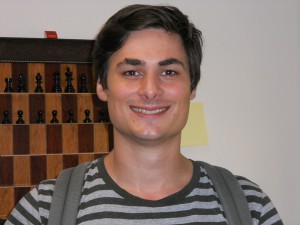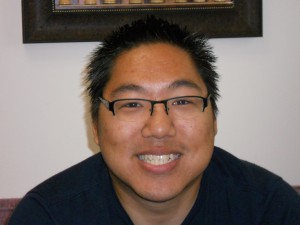http://psych.indiana.edu/faculty/thwjames.php
http://www.psy.mq.edu.au/staffDirectory/staffDirectory2.php%3FStaffID=239.php
I am broadly interested in the cognitive mechanisms involved in visual object recognition and categorization, and how these processes are modulated by experience and expertise. Most of my research has used faces – a category with which we are all experts – to study one behavioral marker of perceptual expertise, holistic processing. Previous work in this area has focused on determining whether holistic processing arises due to a holistic representation or an automatized perceptual strategy, the time course of holistic processing, and how holistic processing is affected by stimulus manipulations such as spatial frequency content and inversion. New projects are aimed at studying individual differences in holistic processing, and how these relate to face recognition performance and more general individuation learning abilities.
I am primarily interested in studying mid- and high-level visual perception, its neural bases, and its interaction with other cognitive processes. My past research has investigated object recognitive and object memory in relation to surface color. I am interested in studying how color and other object properties influence visual perception and cognition because of how these findings can help us understand the nature object perception more generally. Future reserach will continue to investigate these processes for particular object classes including faces, places objects of action, and novel objects, and will evaluate the effect of perceptual expertise through both development and repeated experience as an adult. My reserach is influenced by theoretical issues in philosophy of mind and philosophy of perception, in particular the dissociation of phenomenal conscious visual experience and the neural mechanisms of visual perception. I investigate these phenomenon using both behavioral and cognitive neuroscience techniques such as functional neuroimaging and by incorporating these findings into a broader theoretical framework.
http://www.vanderbilt.edu/psychological_sciences/vangulick
The manipulation of objects is dependent on several factors such as the object’s shape and conceptual knowledge about its use. There are different types of grasps that are made when an object is picked up as opposed to when the object is used (ex: the grasps when a cell phone is picked up is distinct from the grasp made when a cell phone is used to text). These grasps are called volumetric grasps (used to pick an object up) and functional grasps (for use of the object). There has been much debate regarding whether volumetric grasps stem from learned representations of the objects or whether they are made from an on the fly computation by the motor system. My research uses novel objects that people have never had experience grasping in order to approach this question. Ultimately, we will manipulate the amount and type of experience participants receive with these novel objects (visual, physical grasping of the objects, verbal description) in conjunction with fMRI in order to ascertain whether the dorsal or ventral streams are activated for motor representations that have been learned.
Steph is now touring the world with her husband Tony. Follow their travels here:
My work focuses on understanding the behavioral and neural correlates of face and object recognition. I work with physicists to optimize sequencing parameters for functional neuroimaging using Vanderbilt’s 7-Tesla scanner and focusing on the ventral temporal cortex. Using high resolution fMRI at 7T, my colleagues and I have characterized responses to faces, non-face object of expertise, and common objects in subjects with varied expertise. We have shown that neural selectivity and proportional representation of objects in FFA increased with expertise, including in face-selective voxels within the 25 mm2 peak of face selectivity. FFA responses to objects were restricted to a 200mm2 area centered on the FFA peak. In more recent studies at 7T and 3T, I have asked questions about the effects of expertise during conditions of divided attention. Our data suggest unique response properties in the posterior and anterior regions of right and left FFA. With colleagues, I developed the Vanderbilt Expertise Test, which provides a reliable and valid measure of object recognition abilities, and can measure both domain-general skills as well as domain-specific expertise, both of which we’ve shown to depend on sex.
http://www.vanderbilt.edu/psychological_sciences/bio/rankin-mcgugin





